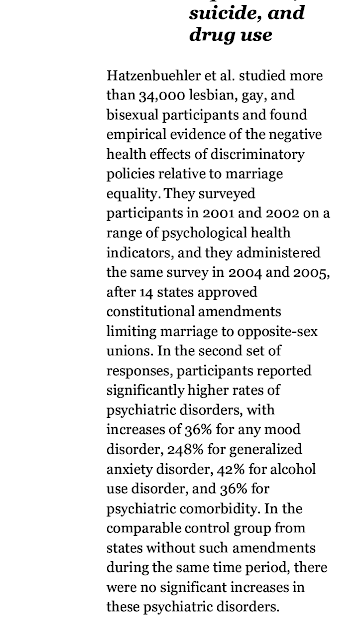The Death of a Parent Affects Even Grown Children Psychologically and Physically
Grief is both real and measurable. Scientists now know that losing a parent changes us forever.
By Joshua A. Krisch
Updated Oct 16 2019, 11:00 AM
The death of a parent is one of the most emotional and universal human experiences. If a person doesn’t know what it’s like suffer the loss of a father or mother, they most likely will one day. But just because the passing of a parent happens to almost everyone doesn’t make it any easier. The death of a parent is traumatic, yes, but it also informs and changes their children biologically and psychologically. It can even make them sick.
 |
| The death of a parent can trigger emotional and physical stress. Click here to learn more. |
“In the best-case scenario, the death of a parent is anticipated and there’s time for families to prepare, say their goodbyes, and surround themselves with support,” psychiatrist Dr. Nikole Benders-Hadi says. “In cases where a death is unexpected, such as with an acute illness or traumatic accident, adult children may remain in the denial and anger phases of the loss for extended periods of time … [leading to] diagnosis of major depressive disorder or even PTSD, if trauma is involved.”
There’s no amount of data that can capture how distinctly painful and powerful this grief is. That said, there are a number of psychological and brain-imaging studies that demonstrate the magnitude of this loss. The posterior cingulate cortex, frontal cortex, and cerebellum are all brain regions mobilized during grief processing, research shows. These regions are involved in storing memories and dwelling on the past, but they’re also involved in regulating sleep and appetite.
In the short term, neurology assures us that loss will trigger physical distress. In the long-term, grief puts the entire body at risk. A handful of studies have found links between unresolved grief and hypertension, cardiac events, immune disorders, and even cancer. It is unclear why grief would trigger such dire physical conditions, but one theory is that a perpetually activated sympathetic nervous system (fight or flight response) can cause long-term genetic changes. These changes — less pre-programmed cell death, dampened immune responses — may be ideal when a bear is chasing you through the forest and you need all the healthy cells you can get. But this sort of cellular dysregulation is also how cancerous cells metastasize, unchecked.
While the physical symptoms are relatively consistent, the psychological impacts are all but unpredictable. In the 12 months following the loss of a parent, the American Psychological Association’s Diagnostic and Statistical Manual of Mental Disorders considers it healthy for adults who have lost their parents to experience a range of contradictory emotions, including sadness, anger, rage, anxiety, numbness, emptiness, guilt, remorse, and regret. It is normal to withdraw from friends and activities; it is normal to throw oneself into work.
As ever, context matters. Sudden, violent death puts survivors at higher risk of developing a grief disorder, and when an adult child has a fractured relationship with a parent, the death can be doubly painful — even if the bereaved shuts down and pretends not to feel the loss. “Coping is less stressful when adult children have time to anticipate parental death,” Omojola says. “Not being able to say goodbye contributes to feeling depressed and angry.” This may explain why studies have shown that young adults are more affected by parental loss than middle-aged adults. Presumably, their parents died unexpectedly, or at least earlier than average.
Gender, of both the parent and child, can especially influence the contours of the grief response.
Studies suggest that daughters have more intense grief responses than sons, but men who lose their parents may be slower to move on. “Males tend to show emotions less and compartmentalize more,” Carla Marie Manly, a clinical psychologist and author, told Fatherly.
At the same time, the differences between losing a father and a mother represent relatively weak trends. “Complicated bereavement can exist no matter which parent is lost,” Benders-Hadi says. “More often, it is dependent on the relationship and bond that existed with the parent.”
Grief becomes pathological, according to the DSM, when the bereaved are so overcome that they are unable to carry on with their lives. Preliminary studies suggest this occurs in about 1 percent of the healthy population, and about 10 percent of the population that had previously been diagnosed with a stress disorder. “A diagnosis of adjustment disorder is made within three months of the death if there is a ‘persistence of grief reactions’ exceeding what’s normal for the culture and the religion,” Omojola says. “In this situation, the grieving adult has severe challenges meeting social, occupational, and other expected, important life functions.” Even adults who are able to go to work and put on a brave face may be suffering a clinical condition if they remain preoccupied with the death, deny that their parent has died, or actively avoid reminders of their parents, indefinitely. This condition, known as persistent complex bereavement disorder, is a trickier diagnosis to pin down (the DSM labeled it a “condition for further study”).
Elisabeth Goldberg works with grieving adults as a relationship therapist in New York City, and she has seen the toll that long-term grieving can take on a marriage. Specifically, Goldberg suggests a (somewhat Freudian) link between losing a parent and cheating on a spouse. “I see many affairs as manifestations of unresolved grief about losing a parent,” Goldberg says. “The adult child stays in a state of disbelief, and rejects reality in many ways in order to feed the delusion that the parent is still alive. The grieving child needs a new attachment figure, that’s the psyche trying to reconcile the denial and grief.
In more concrete — and dire — terms, unresolved grief can spiral into anxiety and depression. This is especially true when the parent dies by suicide, according to Lyn Morris, a licensed therapist and VP at Didi Hirsch Mental Health Services. “Adults who lose a parent to suicide often struggle with complex emotions such as guilt, anger, and feelings of abandonment and vulnerability,” she told Fatherly. Indeed a 2010 study out of Johns Hopkins University confirmed that losing a parent to suicide makes children more likely to die by suicide themselves.
How to cope in a healthy way remains an active area of scientific inquiry. Ross Grossman, a licensed therapist who specializes in adult grief, has identified several “main distorted thoughts” that infect our minds when we face adversity.
On the opposite extreme, patients sometimes blame their deceased parents for not treating them properly, and never making amends. This is similarly unhealthy. “The usual result of this is deep resentment, anger, rage,” Grossman says. “They may have genuine, legitimate reasons to feel mistreated or abused. In these situations, it’s not always the death of the parent but the death of the possibility of reconciliation, of rapprochement and apology from the offending parent.”
“The possibility has died along with the person.”
 |
| The death of a parent can trigger emotional and physical stress. Click here to learn more. |
In extreme cases, therapy may be the only way to get a grieving son or daughter back on his or her feet. But time, and an understanding spouse, can go a long way toward helping adults get through this unpleasant, yet ubiquitous, chapter in their lives. “Husbands can best support their wives by listening,” Manly says. “Men often feel helpless in the face of their wives’ emotions, and they want to fix the situation. A husband can do far more good by sitting with his wife, listening to her, holding her hand, taking her for walks, and — if she desires — visiting the burial site.”















